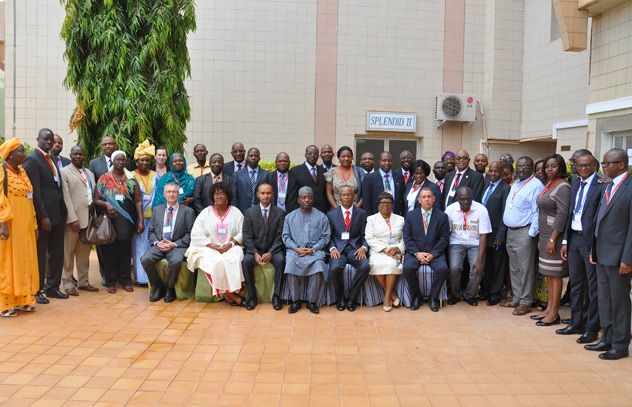

A two-day multistakeholder consultation held in Ouagadougou, Burkina Faso, on 29 and 30 April agreed on the way forward to boost the local production of quality medicines in West Africa.
Update
ECOWAS and partners to boost the local production of quality medicines
01 May 2014
01 May 2014 01 May 2014A two-day multistakeholder consultation held in Ouagadougou, Burkina Faso, on 29 and 30 April agreed on the way forward to boost the local production of quality medicines in West Africa.
Convened by the West African Health Organization (WAHO), the meeting brought together representatives of the Economic Community of West African States (ECOWAS), pharmaceutical manufacturers’ associations, UNAIDS, development banks, including the African Development Bank and the ECOWAS Bank for Investment and Development, as well as major stakeholders from key sectors in the region.
At the meeting, participants adopted the ECOWAS Regional Pharmaceutical Plan (ERPP), which provides a framework to strengthen the pharmaceutical manufacturing industry in West Africa and provides a conducive environment for making quality, safe and affordable medicines accessible to the region’s population.
The ERPP provides a comprehensive framework for WAHO and partners to progress in a coherent and efficient manner to help to solve local medicine accessibility issues. The plan will also supplement the newly established ECOWAS antiretroviral buffer stock mechanism, set up to address the recurrent problem of antiretroviral medicine stocks in the region.
Quotes
"The ECOWAS Regional Pharmaceutical Plan is coming at a very opportune time when countries in West Africa have committed to universal health and antiretroviral therapy coverage."
"Between 60% and 90% of needed essential medicines come from outside the ECOWAS region, thus making its population largely consumers of imported health commodities, and mortgaging our collective regional needs in essential and life-saving medicines to external stakeholders is fraught with danger. The reasonable path is strengthening the local manufacturing of medicines through innovative investments."
"We must forge alliances and strategic partnerships with developing nations that have made tremendous progress in developing their local pharmaceutical industries."
"While we recognize that meeting the region’s demand for formulations and bulk medicines can be a daunting challenge, we should not lose sight of the enormous opportunities, which, if tapped, will reverse the trend of poor access to life-saving medicines."



